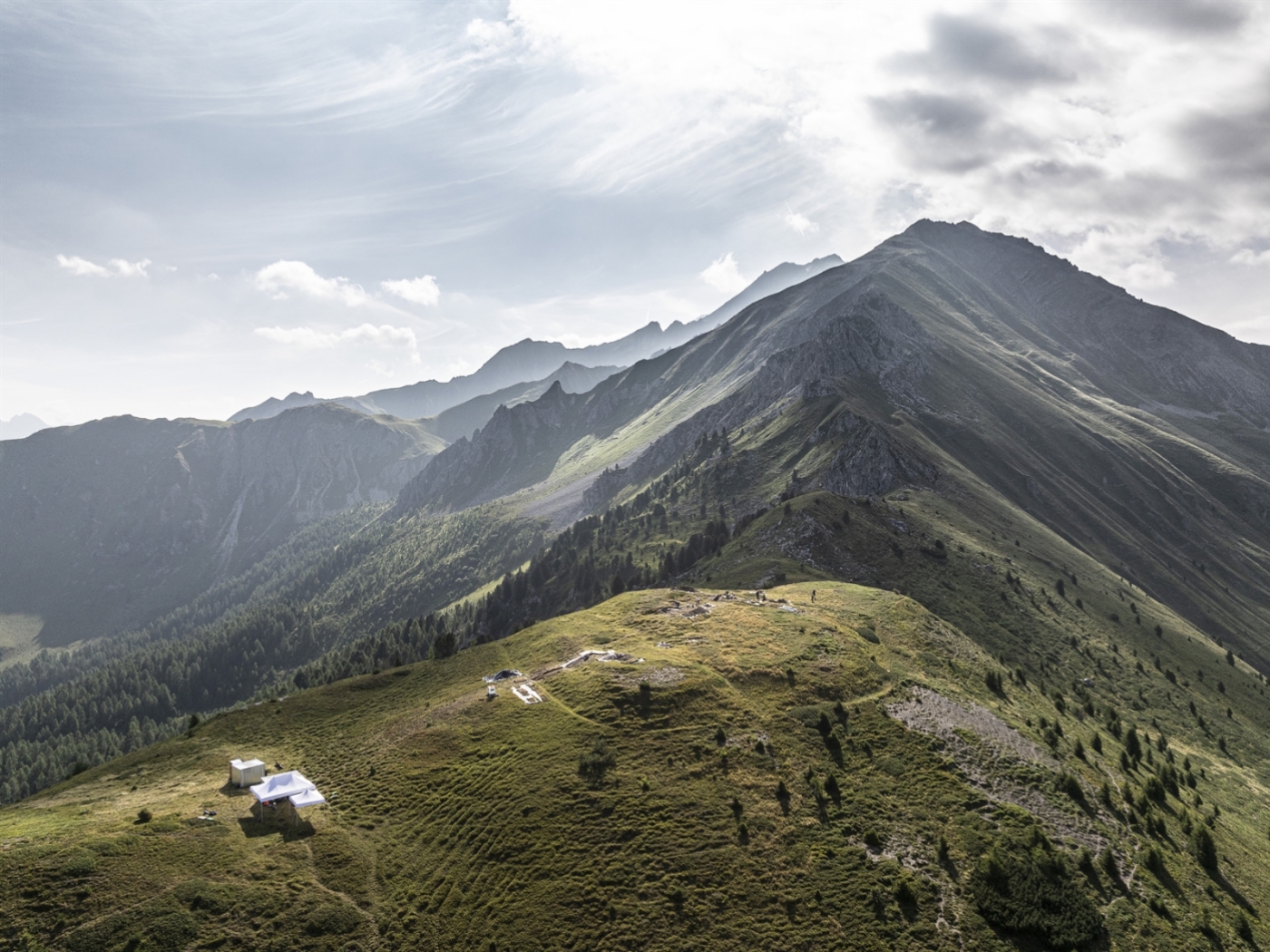
Remains of Roman camp discovered in eastern Switzerland

Archaeologists have discovered the remains of a 2,000-year-old Roman camp in canton Graubünden, eastern Switzerland. The site, at an altitude of 2,200 metres, is of international significance, according to the Graubünden Archaeological Service.
+Get the most important news from Switzerland in your inbox
The military camp was protected by three ditches and an embankment. Its strategic position enabled it to control the surrounding valleys and passes, the cantonal culture office reported on Thursday.
Archaeologists have already found weapons and equipment belonging to Roman soldiers, including lead slingshot projectiles and shoe nails. The marks on the projectiles suggest a link with a known ancient battlefield 900 metres below.
+ Swiss Roman battle site reveals hidden secrets of historic clash
“The sensational discovery of a Roman military camp in Graubünden once again underlines the fact that archaeological research in ‘Roman Switzerland’ continues to produce wonderful surprises,” writes the cantonal office.
+ Facing up to Switzerland’s Roman past
It is now possible to reconstruct the advance of Roman troops over a long distance, from Val Bregaglia to Tiefencastel via the Septimer Pass, and on to Chur and the Alpine Rhine Valley. In this respect, the discovery of the military camp is significant on an international level.
The camp was discovered as part of research into the resistance encountered by Roman troops between Savognin and Tiefencastel. Using Swisstopo digital data, a volunteer surveyor had identified a particular terrain structure on the Colm la Runga high plateau.
Translated from French by DeepL/ts
This news story has been written and carefully fact-checked by an external editorial team. At SWI swissinfo.ch we select the most relevant news for an international audience and use automatic translation tools such as DeepL to translate it into English. Providing you with automatically translated news gives us the time to write more in-depth articles.
If you want to know more about how we work, have a look here, if you want to learn more about how we use technology, click here, and if you have feedback on this news story please write to english@swissinfo.ch.

In compliance with the JTI standards
More: SWI swissinfo.ch certified by the Journalism Trust Initiative

























You can find an overview of ongoing debates with our journalists here . Please join us!
If you want to start a conversation about a topic raised in this article or want to report factual errors, email us at english@swissinfo.ch.